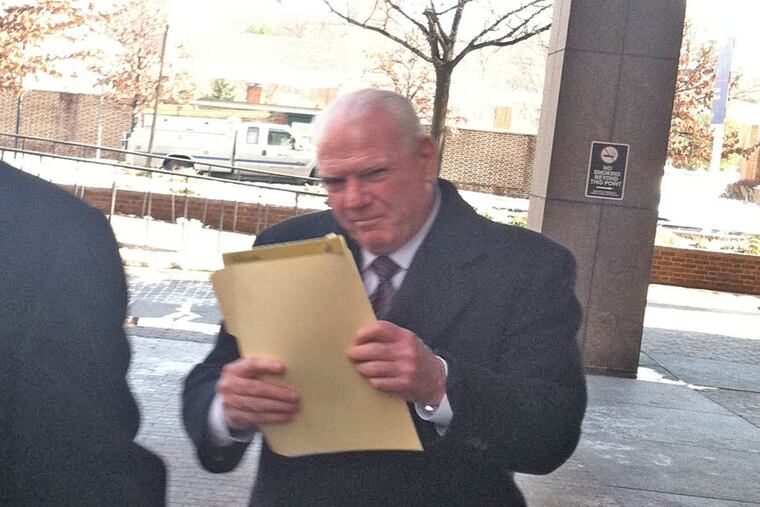Traffic Court's former administrator gets 2 years behind bars
William Hird had pleaded guilty to conspiracy, wire and mail fraud, and making false statements to the FBI.

A FEDERAL JUDGE yesterday sentenced a former court administrator of Philadelphia Traffic Court, who had pleaded guilty in the ticket-fixing scandal, to two years in prison.
William Hird, 69, of Bridesburg, "played a central role" in the long-running, pervasive ticket-fixing scheme, U.S. District Judge Robert Kelly said.
"Politicians, friends, ward leaders approached him for preferential treatment," Kelly said. "As far as we can tell, he said 'no' to none of them. He passed on those requests to judges."
While Hird was not a judge and did not have the power to give favorable outcomes to the well-connected ticket holders, the Traffic Court judges had that power, Kelly said.
Before sentencing, Hird told Kelly he humbly stood before him an "ashamed man." He said he understands the gravity of what he did and will atone for his actions. He appeared emotional as he walked back to the defense table.
Hird's two-year sentence was the same as that handed down two weeks ago by U.S. District Judge Lawrence Stengel to former Traffic Court President Judge Thomasine Tynes.
Their sentences were harsher than that given to former Traffic Court Judge Robert Mulgrew, who was sentenced by Stengel to a year and a half in prison. Stengel had noted that Tynes served longer as a Traffic Court judge than Mulgrew, and thus, was "more culpable."
Hird's attorney, Gregory Pagano, argued before Kelly that it would not be fair if his client received the same sentence as or a longer one than Tynes or Mulgrew, who were the first two defendants to be sentenced.
The two judges, by taking their case to trial, "did not accept responsibility," Pagano said. And unlike the judges, Hird received no ethics training and did not have the power to rule on the outcomes of the traffic tickets, Pagano said. Pagano also argued that Hird should be given credit for having pleaded guilty in the case.
Tynes and Mulgrew were among seven defendants who went to trial in May. A jury in July acquitted all seven of fraud charges, but convicted four, including Tynes and Mulgrew, of lying to a grand jury or to the FBI.
Despite the acquittals, federal prosecutors and Judge Stengel, who presided over the trial, have said that evidence clearly showed that ticket-fixing was rampant at the former Philadelphia Traffic Court. Tynes and her attorney admitted at her sentencing hearing, too, that she had fixed tickets.
Assistant U.S. Attorney Denise Wolf yesterday asked for Hird to be sentenced "on par with" Tynes and Mulgrew, contending that Hird symbolized the "ticket-fixing culture" in Traffic Court by passing on requests to judges and promoting the practice.
Hird, who was Traffic Court's director of records or court administrator from 2001 to 2011, pleaded guilty in January to 18 total counts - charges of conspiracy, wire and mail fraud, and making false statements to the FBI.
Kelly ordered Hird to start his prison sentence Feb. 2.